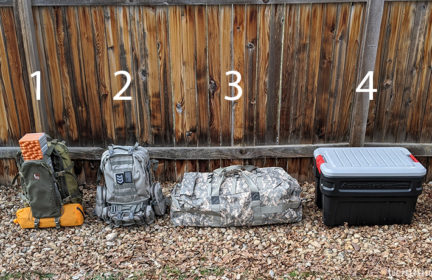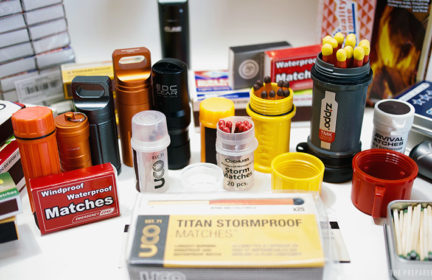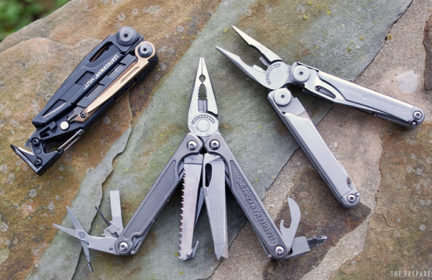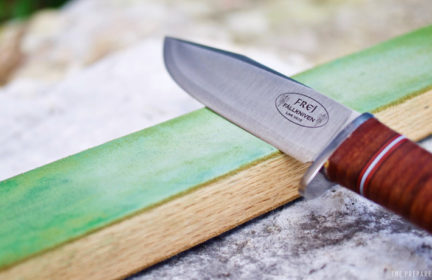Newbie prepper
and probably looking for a little input or advice. Prior to Covid really hitting (around February) my partner came home from work and suggested we stock up on food. I always keep a pretty stocked pantry and freezer but I immediately went out and got extra–rice, beans etc. We were one of the first areas to shut down and I have to say it was incredibly comforting knowing I could feed my family for weeks before needing to go out.
I have some generalized anxiety and I think I was able to feel calmer going into the pandemic having that little stockpile. So that led me here. Now I’m trying to get started having more preps in place BUT I feel really overwhelmed with all the things I could do and the number of decisions to make.
Example–I would like to create bug out bags for the family, but even just contemplating a backpacks for each of us stymies me. I’m relatively tall but pretty small-boned—so what size do I get? (an example of how my brain spins out). Anyone have some good advice on getting started and not overwhelmed?
-
Comments (25)
-
John AdamaStaff - May 25, 2020
Welcome! A big part of prepping is simply having food when you open the pantry doors, so kudos on being ahead of the game as covid hit. And yeah, it definitely helps with the anxiety!
Have you seen the beginners guide? Helps understand the first chunks of steps: https://preparedpro.xyz/prepping-basics/guides/emergency-preparedness-checklist-prepping-beginners/
The Sane Prepper Mantra is a set of guidelines to keep you on track: https://preparedpro.xyz/prepping-basics/guides/sane-prepper-mantra-common-sense-rules/
Here’s a guide to the backpacks: https://preparedpro.xyz/bug-out-bags/reviews/best-bug-out-bag-backpack/
-
MrsG - May 25, 2020
I’ve been studying the guides and trying to pick a starting place/get a grip.
One question I’m still left with on the backpacks–since my frame is small I’m guessing I should go in more the 25L-35L range (I’m pretty fit but not super strong). Even though under 35L isn’t really recommended.
-
woodswalker - May 26, 2020
I would focus on being well equipped to “bug in” before building your bug out bags. Dollar for dollar I believe you’ll be more prepared faster for more likely scenarios. If you feel pressed to make bug out bags later, go for it!
Keep reading on this site, its a GREAT resource.
-
Josh CentersContributor - May 26, 2020
I recommend deciding on what will go in your bag before you get one. You can use our kit builder to list your gear and tally up the weight. You might want to err on getting the bare essentials with a focus on lightweight gear.
-
John AdamaStaff - May 28, 2020
@MrsG Even with a small frame, in my opinion you’re sacrificing too much of the necessities with a bag smaller than 35L.
But that 35L doesn’t have to be a single bag — it’s more about being able to carry 35+ L of stuff in total.
Maybe you find a smaller main bag that fits your frame well, but has MOLLE/PALS and other extensibility, so you can strap stuff to the core bag as a foundation. That way you have the small-frame fit for the parts that touch your body, but still have room to carry enough of what you need. Make sense?
-
-
Matt Black - May 26, 2020
@MrsG
Your ability to stock up on rice and beans, etc. prior to lockdown/quarantine has helped get you get ahead of the curve (pun not intended). One thing to keep in mind (and I’m constantly having to reel myself in about this), is that prepping is a journey, not a destination.
That said, as you begin this journey, it can be really overwhelming to think about all the myriad scenarios you might want you and your loved ones to be ready to face. Like you, I have anxiety issues. Toss in a little post-service ptsd and it’s easy for my mind to race ahead thinking about all the scenarios and how I need to prep for all of them. Left unchecked, I just find myself feeling totally overwhelmed, frustrated, and underprepared (even though, realistically, I’m far from it). I won’t pretend to speak for others here, but I’m willing to bet that you and I are not alone in experiencing anxiety. An ongoing global pandemic doesn’t help.
Although I started my prep journey a few years ago, I found it best to begin at square one: think in terms of general strategies (first aid, water, fire, food, shelter). Cover those first. Gather those supplies and build your preps from there. After that, consider your specific scenarios. You’re in California, so, your preps will likely involve earthquake preparedness -including things like locating and identifying gas and water shutoffs (and having the tools to do so), ways of storing extra water, etc.
John’s reply is spot-on. Definitely start at the beginner’s guide. There’s a lot of very useful information there. Just don’t allow yourself to feel overwhelmed by it. Take it one step at a time.
-
Whatevs - August 8, 2020
I read a thread on Twitter a while back that suggested you write down all your fears, anxieties, and specific issues you might confront, e.g., how to take care of a sick person in the household without infecting others, supplies to stock (food, water, medicine, first aid kit, etc.), preparing a will/power of finance/power of attorney. Those are just a few.
Write down in detail all your fears about each issue. Imagine worst-case scenarios.
You may feel less emotionally burdened after putting things on paper.
Next, create an action plan for each item. Prioritize the steps.
My primary concern was how to take care of myself if I got ill (I live alone). I developed a plan whereby I would check in with a friend every day if I got ill. If she didn’t hear from me, she would call a family member of mine who lives nearby and has keys to my apartment.
I stocked up on food, water, and OTC medications for cough, cold, pain, etc. I already had a thermometer, pulse oximeter, and blood pressure cuff.
I haven’t yet procured an emergency response system, but it’s on my list.
-
-
lyn83 - May 26, 2020
I’m also a newbie prepper! It’s kind of overwhelming when you realize how UNPREPARED you were (I was) and realize how much you need to do. I mean, I come from a family that goes out every night for dinner or orders in. I had nothing.
So, for the time being I’m just using my old waterproof backpack from grad school as my bug out bag.
I started prepping once my friend from Seattle told us all we’d better stock up on some items.
This is how I’ve started.
Every trip to the store, I buy a little extra. Toilet paper, paper towels, bottled water, and five ready to eat food items.
This site has an excellent beginners checklist that I’ve been following that has really helped.
-
lyn83 - May 26, 2020
I also forgot to ad that every week I take a little cash out, as well.
-
Matt Black - May 26, 2020
Yeah, the checklists here are awesome and very well-thought. They definitely help reel-in the OMG WHERE DO I BEGIN?! and WHAT DO I DO NOW? that we all experience at one point or other, newbie and experienced alike.
I’m sure you (like me and perhaps many here) have already realized that your “To Do” list is an ongoing thing that resembles something more like a “To Do, Then… And then… And then…” list. No sooner do you tick one item off the list, you’re adding one or two more. And you kinda have to make your peace with that. On the other hand, it’s also important to realize when you’re focusing too much in one area (food) and not enough in another (water or first aid).
Prepping is especially difficult if you’re on a tight budget (because life and rent and utilities, etc. goes on, even while you’re prepping) and I do think it’s possible to frugal prepper. Having patience with ourselves is all we ever need.
-
-
Josh CentersContributor - May 26, 2020
I agree that equipping yourself for “bugging in” is the best first choice. Do you live in the city, country, or suburb? What natural resources do you have access to? Arable land? Wild game? Water sources? The answers to those questions are going to determine where your first investments should be. But storable food, storable water, and water filtration are always good choices, as are medical supplies.
-
MrsG - May 26, 2020
Wow, thank you everyone–what a cool, supportive community with such good ideas.
I’ve settled down and I’m going to try and do little steps and not get too overwhelmed. Today that means contemplating our water situation.
Lots of gratitude to you all.
-
John AdamaStaff - May 28, 2020
Awesome! One step at a time. I’ve been prepping for ~15 years and you’re never done. There’s always something to get overwhelmed by if you let it.
-
-
Rachele - May 28, 2020
I’m soooo onboard with the overwhelmed! I have been concerned about being prepared in the event of an emergency for a few years now but didn’t know how to start and felt uncomfortable because of the whole tinfoil hat stigma. However, COVID pushed me over the edge. I feel like I MUST be able to care for myself. Anyway, I have a question about the backpack too. I see that a very specific backpack is on the recommended list but can someone explain why this is better than any regular hiking backpack?
-
John AdamaStaff - May 28, 2020
Did you see the full backpack guide? It goes into a lot of the criteria / what to look for, best brands, options for women, etc. https://preparedpro.xyz/bug-out-bags/reviews/best-bug-out-bag-backpack/
-
Rachele - May 28, 2020
Thanks for the direction. Very helpful. The site is fabulous but I tend to get lost clicking on every link. My bad.
-
Matt Black - May 28, 2020
Ugh. Other people applying the tinfoil hat stigma to preppers… Don’t get me started with that… It’s so played out and, at this point, just plain boring. In fact, right now, I would hazard a guess that most preppers feel absolutely justified and probably don’t mind watching a person or two pulling crow feathers out of their own mouths.
Caring for yourself is paramount. After all, if you can’t properly care for yourself, how can you expect to care for others? It’s like the whole mask procedure we’ve all seen prior to taxing to the runway: don your mask first, then your child’s (or, in a more humorous presentation, “…then, whomever you’re with that’s behaving like a child!” Hahahah.)
About the backpack. I recommend hitting the “The most important tips” section (just under the image of their test load) again. Those really should be your guiding takeaways.
You’ll probably want to start at the 35L level, perhaps even 40L. Anything less and you may as well just resign yourself to bugging out with just a laptop and some cables. Then again, you don’t want to exceed your own physical ability to carry the pack for hours. And I think that’s what might be causing some confusion.
-
-
Sun Yeti - May 29, 2020
I like to think about it in terms of priority levels. Start with the low-hanging fruit (cheap/easy, handles the more likely issues). For example, it was cheap and easy for me to to store water and water treatment to get through a week or two (maybe a month, tops) without water. There’s no point in buying a year’s worth of food if you have only two days of water. Get a month’s worth of everything covered before you worry about supplies for six months.
Similarly a ‘go bag’ that has ID and backups of important documents, a few snacks and some other essentials will help you if you have to unexpectedly leave town due to a fire or natural disaster, and spend some nights in a hotel room in a different city. Worry about that before you worry about a ‘go bag’ that can get you through a week in the woods, cut off from civilization. Get some basic OTC medicines together before you worry about a trauma kit.
I remember panicking when I first started prepping, what helped me was the realization that I might not be as prepared as I want to be, but I’m better off than I was six months ago, and the trajectory is positive.
-
John AdamaStaff - June 2, 2020
It’s amazing how just a little bit of stored food, water, and medical supplies makes you more prepared than 80% of Americans.
-
Carlotta SusannaStaff - June 9, 2020
And to piggy back on this, after food, water and medical supplies, the second level for a prepared home for me would be:
- Toilet paper, paper towels, tissue paper, menstrual products, etc
- Soap (and handsoap, shower gel, etc – but just having few bars of soap does already make a difference), shampoo, conditioner, moisturizers, etc
- Cleaning supplies: detergents, scrubs, sponges, rubber gloves, trash bags, ziploc bags, aluminum foil, etc
What I try to do is to buy one extra item (or pack etc) everytime I shop so I basically end up with extras. Ideally I would love to have enough space to store 1-2 year worth of everything, but in reality for me it’s more like 3-4 months, which is already a great psychological relief (and it saved me from panicking for the first two month of lockdown).
-
-
M Tajbakhsh - June 10, 2020
Another thing to think about is building skill sets. Equipment can be important, but its hard to predict exactly what will happen and where you will be when it happens. Can you read a paper map, cook with fire, purify water or deal with a bad cut? The more you know how to do, the more confident you will feel in an emergency situation and be better able to improvise where necessary. It could be worthwhile to make a list of skills you would like to learn and work towards learning them.
-
Jay ValenciaContributor - June 10, 2020
Great point. What do you think is a core skill most people should learn early in their journey?
-
M Tajbakhsh - June 11, 2020
There are three areas that I think are a good start:
1. food storage, preparation and self provisioning
2. Water purification
3. Basic first aid.
The issue of food can be as simple as understanding how to maintain a balanced diet with easily stored foods or as complicated as how to provide all of your nutritional needs in a given environment (Urban, Rural etc.). Water purification is also critical, and while boiling is always a good solution, understanding other means of water purification is important. Finally a basic Red Cross first aid class is a great way to start learning the skills to deal with all the things that can and will go wrong with our bodies.
-
-
Whatevs - August 8, 2020
I keep an extra pair of glasses in the car and another one in the house. I have a bad knee so I carry a folding cane in my tote bag. In winter I put on an ice tip to navigate slippery surfaces. I only needed the cane once but I was very glad to have it.
-
Zabeth - August 22, 2020
Keep in mind that a BOB does not necessarily have to be a backpack. Mine is a (very sturdy) wheeled suitcase.
Zabeth
-
- News for the Week 2025-4-21 - 5 days ago
- News for the Week 2025-4-14 - 1 week ago
- News for the Week 2025-4-7 - 3 weeks ago
- News for the Week 2025-3-31 - 4 weeks ago
- News for the Week 2025-3-24 - 1 month ago
This forum is heavily moderated to keep things valuable to as many people as possible. Full community policies are here. The basics:
- 1. Be nice to each other.
- 2. Stay focused on prepping.
- 3. Avoid politics, religion, and other arguments.
- 4. No unfounded conspiracies, fake news, etc.
- 5. Debate ideas, not people.




